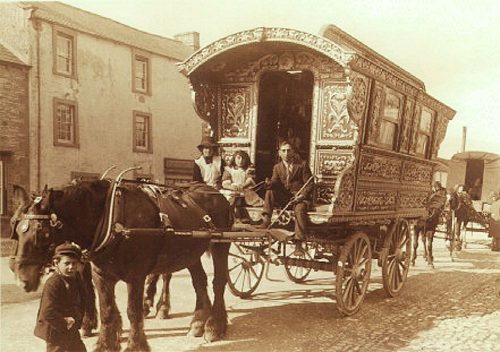
On this website and on Romangelica’s social media accounts, you may have seen the use of three different words — Roma, Romani, and Romany. While all of these words are connected, there can be confusion surrounding the use of these different words. In this post I will discuss a bit of background and explain the different contexts and usages of Roma, Romani, and Romany.
The word Roma is used as a general term to refer to the ethnic minority of people who originated in India centuries ago, and who now live as a diaspora around the world. The origin of the word comes from the Romanes (the language of the Roma) word “Rom,” which means “man.” When referring to the general ethnic group and collective people, the term Roma is most often used.
The word Romani is sometimes used interchangeably with “Roma,” but it is more often used as a descriptor term instead of a general noun. For example, when referring to the general ethnic population you would use “the Roma,” but when referring to a group of Romani individuals or a single Romani person, you would use “the Romani people.” In contextual terms, “Romani” is used as a descriptor or adjective, whereas “Roma” is used as a plural noun. As previously mentioned, however, sometimes the terms are used interchangeably. You could say, for example “I am Roma” or “I am Romani” and both are acceptable.
While the terms “Roma” and “Romani” are used by all Roma, the word Romany is used more specifically by English-speaking Roma. It functions the same way as the term “Romani” in that it is most often used as a descriptor but can also be used interchangeably with “Roma.” There is also a difference in pronunciation between “Romani” and “Romany.” The word Romani (row·maa·nee) emphasizes the “a,” whereas the word “Romany” (raa·muh·nee or row·muh·nee) emphasizes the “o.” This is simply due to differences in the English pronunciation of words.
The Roma are a culturally diverse people, with different words, dialects, and pronunciations. Learning how different Romani people refer to themselves and others is important in understanding our history and who we are today.
